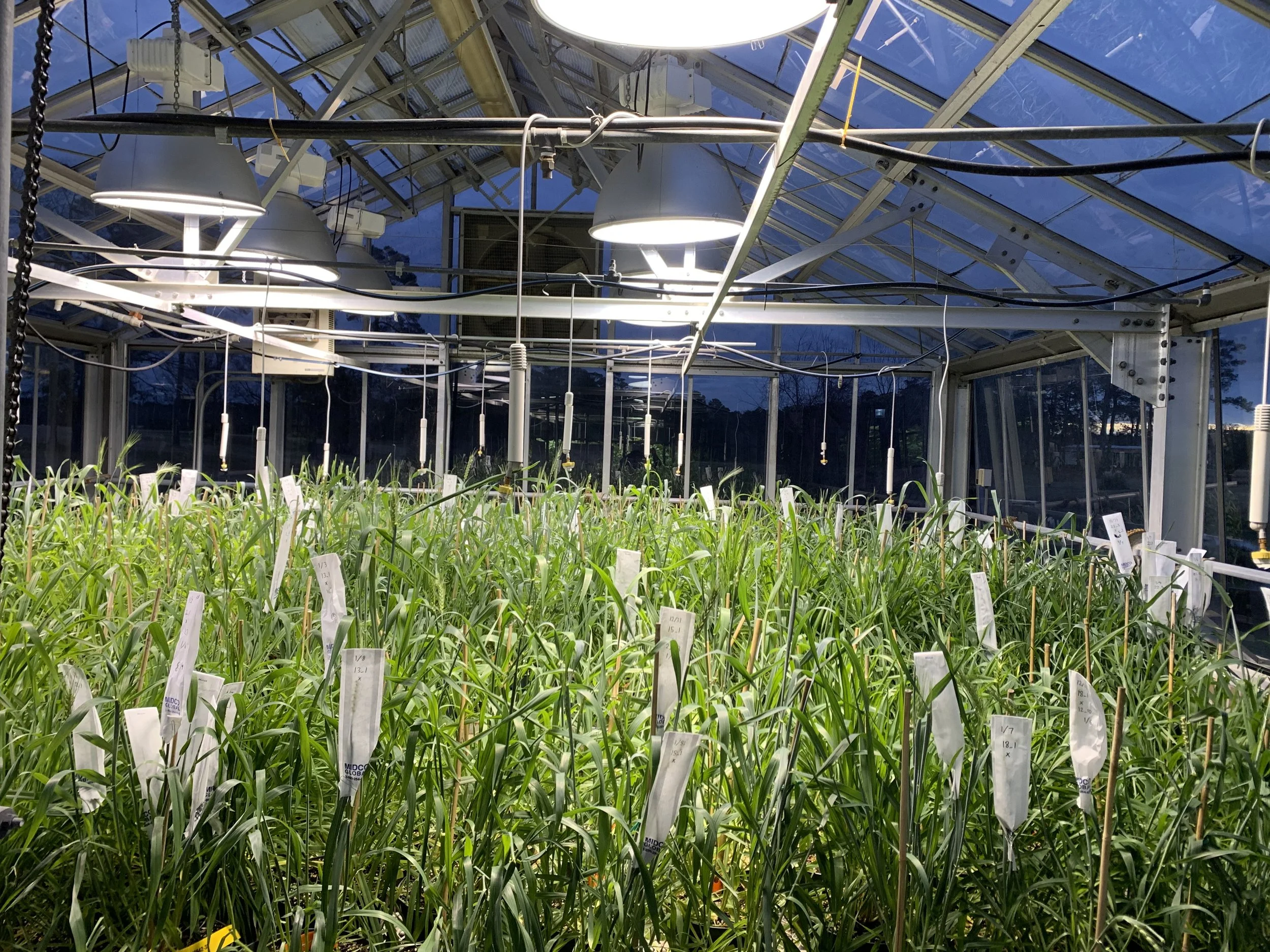What We Do
Dr. Boyles and his team leverage natural genetic variation in cereal grains like sorghum, wheat, and oats to bolster their ability to yield in both favorable and harsh environments. This process can take time, but developing new crop varieties with increased productivity, resistance to pests and diseases, and enhanced quality can be well worth the wait. In addition, the program works to develop genetic resources and new plant populations that can help the scientific community discover valuable traits and genes, as well as implement better breeding schemes that can accelerate crop improvement.
Why We Do It
THE NEED: Today’s farmers are presented with many challenges. While one research program cannot address them all, our program is committed to developing and delivering the best wheat, sorghum, and oat genetics for South Carolina and surrounding states. These crops do not have as much private industry investment as others, such as corn, cotton, and soybeans, so our program tries to fill this need. We combine molecular and genomics technologies with good old-fashioned conventional breeding to speed up the breeding process.
THE PASSION: We have released sorghum and oat genetics that are being grown by farmers across the southeastern United States, and we are close to releasing wheat cultivars that have shown promise in their ability to produce high grain yield and resist key diseases such as Fusarium head blight (scab), leaf rust, and powdery mildew. There is nothing more fulfilling than to receive feedback from growers that a Clemson-developed variety met (or perhaps exceeded) their expectations.
THE DEMAND: Last but not least, our program works hard to mentor and train graduate students to create a strong workforce of plant breeders in the next generation. As weather varies and pests evolve, more challenges will arise that will certainly warrant new, more adapted varieties. Want to join our team? Email Dr. Rick Boyles at rboyles@clemson.edu.

